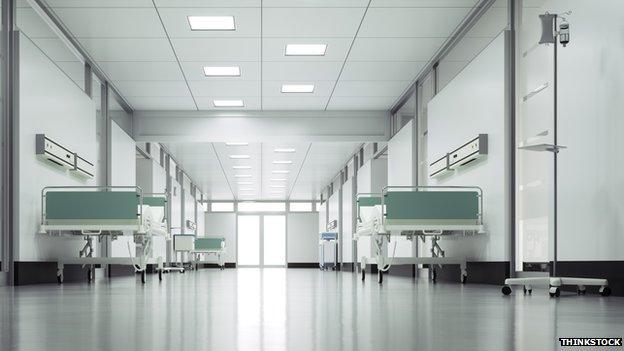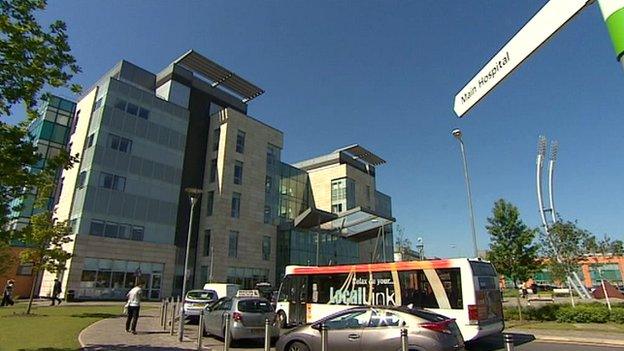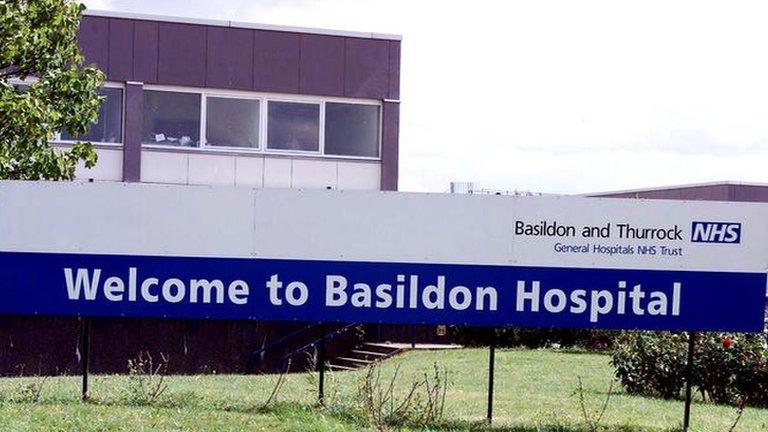East of England hospital trusts' £259m deficit 'risks damaging care'
- Published

Hospitals in the East of England east are predicting a total deficit of £259m
The £259m deficit facing East of England hospitals poses a "genuine risk of damaging quality of care", it has been warned.
Research by the BBC found the shortfall facing 22 hospital trusts in the region had risen by 63% compared to 2013-14.
NHS Providers, a lobby group representing NHS organisations, said the level of debt represented about a quarter of the UK's total NHS debt.
The government said it had managed to increase the NHS budget by £2bn.
Of the 22 trusts, only four - Luton and Dunstable, Bucks Healthcare, Papworth and James Paget - predict surpluses in 2014-15.
Ipswich Hospital forecasts a £12m deficit, while the Queen Elizabeth Hospital in King's Lynn, Norfolk, predicts a £14.9m deficit. Northampton Hospital predicts a £16.7m deficit.
NHS Providers said "sustainable" funding solutions were needed.
'More non-NHS services'
Saffron Cordery, its director of policy and strategy, said the whole NHS faced a £1bn deficit.
"We've reached a point where we're at genuine risk of damaging quality of care for patients," she said.
Allyson Pollock, a University of London professor of public health research and policy, said it was likely hospitals would look to generate cash through providing "non-NHS services, such as more private patients".

Peterborough and Stamford Hospitals NHS Trust had a deficit of £39.5m - the highest in the East of England
Political blogger Iain Dale said: "I don't think there is a short-term solution. Any future government will at some point have to write-off debts."
Richard Murray, director of policy at the King's Fund think tank, called for fewer "premium agency nursing" to be used and more care in the community.
Both Ipswich and Bedford hospitals said their deficits were linked to increased demand from patients, with people living longer.
Nick Hulme, chief executive of Ipswich Hospital, said there was a "systemic problem" with NHS funding, in that there were "more sicker patients and patients living longer".
The Luton and Dunstable Hospital, which expects a £19,000 surplus, said it had not "sacrificed quality" and was meeting targets.
A Department of Health spokesman said: "We've been able to increase the NHS budget by an extra £2bn for the next financial year, and NHS England's own chief executive Simon Stevens acknowledged we had 'listened and responded with the funding [needed] for next year to sustain frontline NHS services and kick-start transformation'."
- Published12 December 2014
